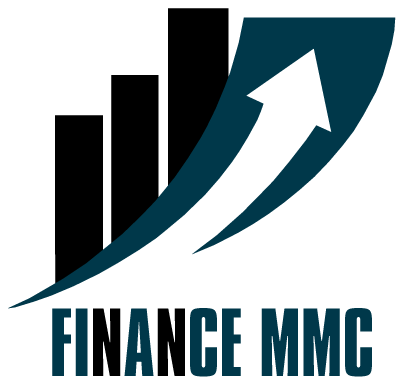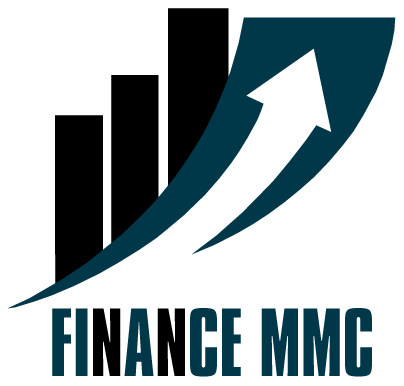Discover if and how you can doctors invest in stock market with our comprehensive guide covering regulations, investment strategies, and best practices for physicians
can doctors invest in stock market ? As a doctor, you make a good income, around $300,000 a year. This can go up if you work for yourself. Investing in the stock market is a great way to grow your money. This guide will help you understand how to invest as a doctor.
Key Takeaways
- Doctors can legally invest in the stock market, but must be aware of special rules and guidelines applicable to their profession.
- Understanding basic investment concepts, market fundamentals, and trading platforms is crucial for doctors entering the stock market.
- Investing in index funds can be a smart choice for busy physicians seeking long-term growth with lower risk and fees.
- Diversification and risk management strategies are essential to protect your portfolio and achieve your financial goals.
- Balancing medical practice with investment management requires careful time management and potentially seeking professional support.
Understanding the Basics of Stock Market Investment for Physicians
Investing in the stock market might seem scary for doctors, but it’s a great way to grow your wealth. It’s all about knowing the basics and how they fit with a doctor’s needs and challenges.
Key Investment Concepts
Stocks, bonds, and cash are the main types of investments. Doctors should spread their money across different types to reduce risk. Index funds are a smart choice for busy doctors because they follow a market index.
Market Fundamentals for Medical Professionals
Doctors need to know about the healthcare market. This includes the Medical Cost Ratio and how much companies spend on research and development. These numbers can affect a company’s success in the healthcare sector.
Getting Started with Trading Platforms
There are many platforms and brokerages that make investing easy for doctors. These tools help you research, trade, and keep an eye on your investments. You can do it all from your phone or computer.
Learning the basics of investing can help doctors manage their money well. They can create a portfolio that fits their goals and risk level. With the right knowledge, doctors can use the stock market to grow their wealth.
| Key Investment Concepts | Market Fundamentals for Medical Professionals | Popular Trading Platforms |
|---|---|---|
|
|
|
“The stock market has historically averaged a return of 10% over several decades, and the power of compounding can help doctors’ investments double every 7-10 years depending on returns.”
Can Doctors Invest in Stock Market: Legal Framework and Guidelines
Doctors face strict rules when investing in the stock market. They must disclose any conflicts of interest and act ethically. Investing in companies related to their field is especially risky.
Doctors should get advice from financial and legal experts familiar with healthcare. These experts can help understand the rules for medical professionals investing in stocks.
In Indiana, Senate Bill No. 92 requires reporting on big healthcare deals. There’s also a 90-day notice for such transactions. The focus is on the total assets involved, not just the deal size.
The Indiana Law’s unclear terms have raised questions. Doctors should ask the Indiana Attorney General for clarity. As private equity grows in healthcare, laws might change to address risks.
Following the rules helps doctors invest wisely and keep trust in healthcare. Ethical investment strategies can help doctors grow their wealth.
| Regulation | Key Provisions |
|---|---|
| Indiana Senate Bill No. 92 |
|
“Private equity’s incursion into health care threatens to increase costs, lower health care quality, contribute to physician burnout, and moral distress.”
As healthcare changes, doctors need to know the rules for stock market investments. Working with experts ensures their investments are ethical and follow the law.
Benefits and Opportunities for Medical Professionals
Investing in the stock market can be a game-changer for doctors. It’s not just about wealth building. There are many benefits that make it a great choice for medical professionals.
Wealth Building Potential
The stock market often beats traditional savings, offering higher returns over time. Doctors can use this to grow their wealth. This strategy can lead to a more secure financial future.
Tax Advantages
Investing in the stock market comes with tax advantages for doctors. Options like 401(k)s and IRAs let you delay taxes on your earnings. This helps in maximizing your financial planning for physicians and wealth management for doctors.
Portfolio Growth Strategies
Spreading your investments across different areas can protect against market ups and downs. By investing in various stocks, you can prevent big losses from one bad investment. This way, your wealth management for doctors can grow steadily.
The stock market is a powerful tool for doctors to build financial security. With the right approach, it can lead to significant passive income and wealth accumulation.
Index Funds: The Smart Choice for Busy Physicians
Managing investments can be tough for busy physicians. But, index funds are a simple way to grow your wealth. They track market indices like the S&P 500, offering diversification and lower risk.
The Vanguard Total Stock Market Index Fund (VTSAX) is a great choice. It has a low expense ratio of 0.04% and invests in nearly 4,000 companies. You can start with a $3,000 minimum and add as little as $1 later.
VTSAX has shown strong performance over time. It handles market ups and downs well. It’s also cost-effective and covers a wide range of the market.
Vanguard, the company behind VTSAX, focuses on its clients. It’s owned by its investors, which helps keep fees low. This means more of your money can grow over time.
“VTSAX covers an extensive range of sectors to minimize risks associated with market downturns and individual sector performance.”
As a physician, time is valuable. Index funds like VTSAX offer a convenient way to grow your wealth. They let you focus on your medical work while your investments grow.

Investing wisely means diversifying and thinking long-term. Index funds help you reach your financial goals without the stress of picking stocks. They’re a smart choice for busy physicians in the healthcare worker equity trading world.
Risk Management and Portfolio Diversification
Managing your investment portfolio as a doctor needs a smart plan to avoid risks and keep your wealth safe. Diversifying your investments is crucial. By spreading your money across different areas, you can lessen the effects of market ups and downs. This helps protect your financial future.
Asset Allocation Strategies
When creating your investment portfolio, aim for a mix of different assets. This includes stocks, bonds, real estate, and other investments. This mix can offer both stability and growth. Index funds are often a good choice for doctors because they tend to do well compared to many mutual funds.
Market Volatility Protection
To shield your investments from market swings, think about adding assets that fight inflation. Treasury Inflation-Protected Securities (TIPS) and Real Estate Investment Trusts (REITs) are good options. They help keep your savings’ value steady during economic shifts.
Long-term Investment Planning
Your investment plan should match your long-term goals and how much risk you’re willing to take. Regularly check and tweak your portfolio to keep it aligned with your needs. Strategies like Total Stock Market Index Funds have shown strong performance, beating 80% of mutual funds.
By focusing on managing risks and diversifying your portfolio, you can confidently navigate the investment world. This approach helps build a secure financial future for doctors.
| Investment Option | Average Annual Return | Risk Level |
|---|---|---|
| Total Stock Market Index Fund | 10% | Medium |
| TIPS | 3-5% | Low |
| REITs | 8-12% | Medium-High |
Investment Options Beyond Traditional Stocks
As a doctor, you have more investment choices than just stocks. Diversifying your investments can bring stability, tax benefits, and steady income. Let’s look at some alternative strategies that could help physicians.
Real estate is a favorite, offering passive income from homes, businesses, or REITs. REITs, in particular, must give out at least 90% of their profits as dividends. This creates a steady income stream.
Investing in commodities like metals or energy futures is also smart. These assets tend to do well when the economy is shaky. They help protect your investments from market ups and downs.
If you know a lot about healthcare, investing in healthcare stocks or ETFs can be wise. Your knowledge of medical trends and innovations can help you spot good investment chances.
Tax-advantaged accounts like IRAs and 401(k)s are great for financial planning for physicians. They let you delay or lower taxes on your investment gains. This helps your portfolio grow over time.
| Investment Option | Key Benefits for Physicians |
|---|---|
| Real Estate | Passive income, diversification, tax benefits |
| Commodities | Hedge against market volatility, portfolio diversification |
| Healthcare Stocks/ETFs | Leveraging industry expertise, potential for growth |
| Tax-Advantaged Accounts | Deferred or reduced tax liability, long-term growth |
Exploring these investments for medical practitioners can help you create a diverse portfolio. It should match your financial goals and risk level. Always do your homework, get expert advice, and manage risks well.
Managing Investments While Practicing Medicine
Being a busy doctor means juggling your medical work and investments. But, with smart strategies and help, you can manage your wealth well. Let’s look at how to balance these two important areas.
Time Management Strategies
Time is very valuable for doctors. It’s key to use it well. Set aside time for investment reviews, automate tasks, and use mobile apps. This way, your investments won’t get in the way of your medical work.
Professional Support Options
Getting help from a financial advisor is very helpful. Look for one who knows the healthcare industry well. They can give you advice on investments, taxes, and diversifying your portfolio. This lets you make smart choices while focusing on your medical career.
Balancing Clinical Practice and Investments
It’s important to keep your medical work and investments in balance. Put some of your income into long-term investments like index funds. They grow steadily with little effort. Stay away from too much trading or complicated strategies that might take you away from your medical duties.
By managing your time well, getting professional advice, and balancing your work and investments, you can manage your wealth. This way, you can secure your financial future while focusing on your medical career.
| Investment Strategy | Potential Benefits | Potential Risks |
|---|---|---|
| Index Funds |
|
|
| Real Estate Investments |
|
|
| Managed Funds |
|
|
Common Investment Mistakes Physicians Should Avoid
Physicians often have the means to invest in the stock market. But, it can be tough to navigate the investment world. Knowing the common mistakes doctors should avoid is key to a successful investment journey.
One big mistake is over-trading or not diversifying investments. Doctors might try to make quick money by trading a lot. But, this can lead to higher fees and more risk. It’s important to have a diverse portfolio that fits your long-term goals.
Another mistake is being drawn to high-risk investments that promise big returns. These investments might seem appealing, but they can be very risky. Always do your research and understand the risks before investing.
- Not considering the tax implications of investments can lead to financial surprises. Talk to a financial advisor to make sure your investments are tax-smart.
- Letting emotions guide your investment choices during market ups and downs can be bad. Staying disciplined and focused on the long term is key.
- Ignoring investment strategies that might violate medical ethics or regulations can put you at risk. Always check for any potential conflicts or compliance issues before investing.
By knowing these common pitfalls and being careful, doctors can do well in the stock market. This can help improve their financial health.

| Investment Mistake | Potential Impact |
|---|---|
| Over-trading | Higher fees, increased risk exposure |
| High-risk investments | Jeopardize financial security |
| Ignoring tax implications | Unexpected financial burdens |
| Emotional decision-making | Poor investment outcomes |
| Conflicts with medical ethics/regulations | Legal and professional risks |
Tax Implications and Financial Planning
As a physician, knowing how taxes affect your investments is key to good financial planning. Your high income puts you in the top tax brackets. So, planning your taxes carefully is very important.
Putting money into tax-advantaged accounts like 401(k)s, 403(b)s, and IRAs can lower your taxes. This helps your wealth grow over time.
The Simplified Employee Pension (SEP-IRA) lets self-employed doctors contribute up to 25% of their salary. In 2020, the max contribution was $66,000. Roth IRAs offer tax-free growth and withdrawals, with a 2024 max of $6,500.
Working with a tax expert who knows healthcare can help. They can guide you through these options. This way, you can create a financial plan that meets your specific needs and goals.
Remember, the tax impact of your investment income matters a lot. Long-term investments are often taxed better, helping you build wealth. Also, strategies like the Qualified Leverage Strategy can help grow your money tax-efficiently. This way, you can access your funds more easily in retirement.


